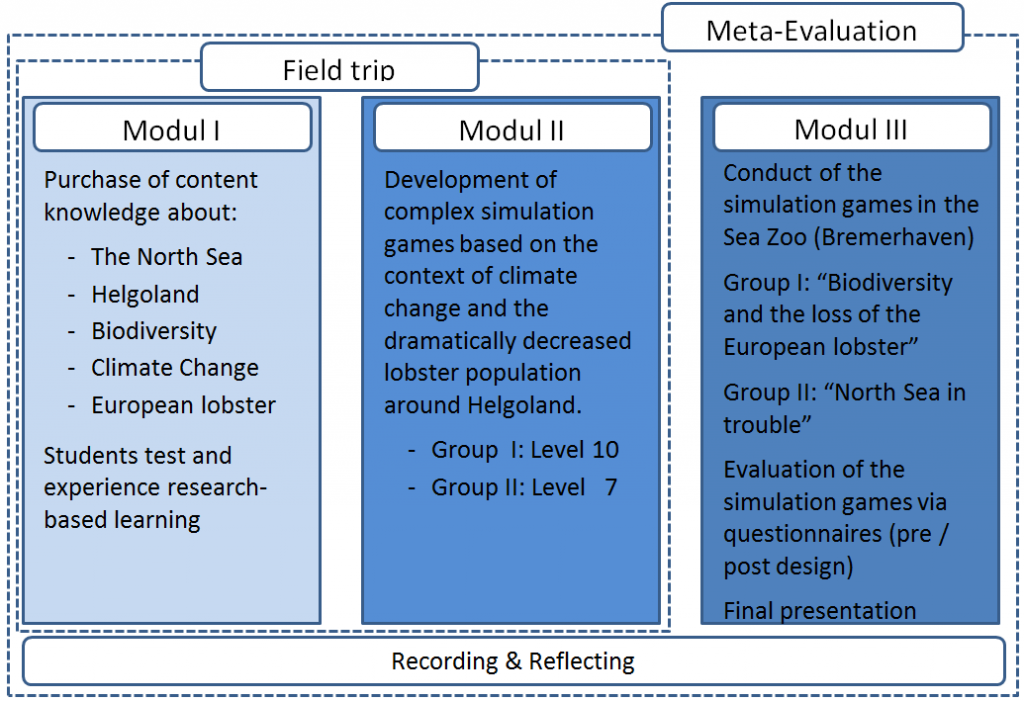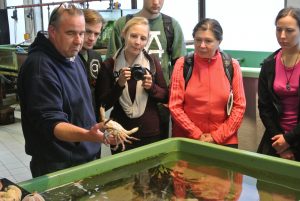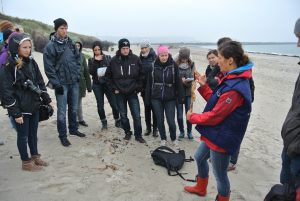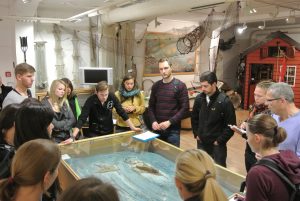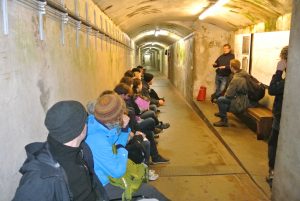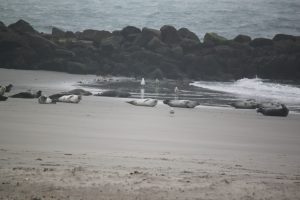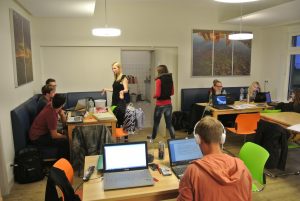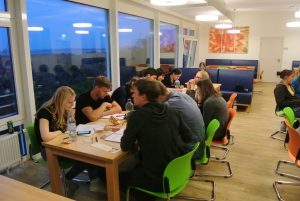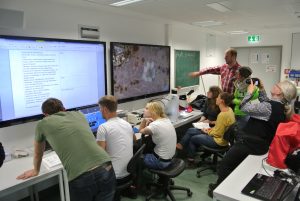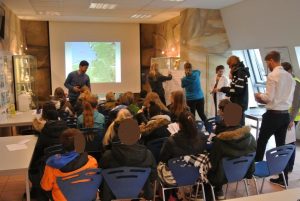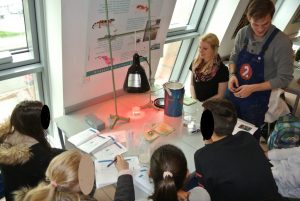“INQUIRE for Students” is an academic practical course for ongoing biology and geography teachers. The course aims in the development of system competence, subject knowledge and methodological knowledge in respect to an Education for Sustainable Development (ESD) [4].
In the winter semester 2015/16 fifteen teacher students joined the INQUIRE course. The course was divided in three phases:
Modul I
In the first phase the teacher students took part in a five-days-lasting field trip to Helgoland, an island in the German North Sea. Supported by a science educator and a geography educator the teacher students gained practical knowledge about inquiry-based science education (IBSE) and received information on the ecology, economics, politics and the history of Helgoland. The focus was set on the context of climate change and the loss of biodiversity in respect to species of the North Sea.
Since the 2nd World War the population of the European lobster (Homarus gammarus), the heraldic species of Helgoland, has dramatically decreased. To avoid the extinction of the lobster, the Alfred-Wegener-Institute founded a breeding station on Helgoland.
During the field trip to Helgoland the students analysed the local syndrome “Loss of the European lobster” by the connection of the elements of the system (e.g. effects of climate change, invasive species, effects of World War II, humans, tourism etc.), to elaborate the influences for the loss of the lobster population. In addition, they developed scenarios to avoid the extinction of this species.
Modul II
In the second phase of the project the teacher students worked in two groups and applied the new information about the lobster syndrome to develop simulations games for 7th and 10th graders. The simulation games allowed the pupils to take over a predetermined role (e.g. ecologist, economists, tourism manager, and fisherman) and discuss, if the lobster breeding station of the Alfred-Wegener-Institute should be government-financed furthermore or not.
Modul III
In the third phase the teacher students conducted these simulation games with the two school classes in the “Zoo am Meer” in Bremerhaven. During the simulation games the pupils acquired subject knowledge about the impact of climate change on ecosystem North Sea and the lobster population by conducting inquiry-based activities. At the end of the simulation game the pupils discussed and made a common-shared decision about the possible actions in respect to the lobster syndrome.
In addition, the teacher students developed a questionnaire to evaluate the impact of the simulation games on pupils´ learning outcome.
